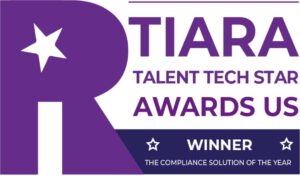According to the U.S. Travel Association, 80% of business travelers took at least one business-related trip in 2023. Whether your employees are flying across the ocean or driving down the street for coffee, your company may be on the hook for their expenses.
Many employers are required by law to cover travel, supplies, services, and even educational fees when they’re necessary for the job. Discover what you need to know about reimbursement policies and how to craft one that’s both reasonable and compliant.
Reimbursing Employees: What Does the Law Require?
The Fair Labor Standards Act only requires employee reimbursements for work-related expenses if they cut into overtime pay or cause the employee’s wages to fall below the current federal minimum wage. When this happens, employers must reimburse the employee on the next paycheck to ensure their pay meets requirements.
Variations in State Reimbursement Laws
Though federal law doesn’t require automatic employee reimbursements, several jurisdictions have employee reimbursement laws, including:
- California
- Illinois
- Iowa
- Massachusetts
- Minnesota
- Montana
- New Hampshire
- New York
- North Dakota
- Pennsylvania
- South Dakota
- Seattle, Washington
- Washington, D.C.
Currently, there are significant variations in state reimbursement laws. For example, California, Illinois, and Massachusetts require employee reimbursements for all necessary expenses or losses, which are those directly related to job duties.
Seattle laws specifically mention reimbursements for remote work expenses. New York laws require payment for reimbursements or wage supplements that have been promised.
Under these laws, it’s important to know what is meant by “necessary expenses.” Office supplies or plane tickets for business trips may be reimbursed, while personal expenses for commuting to work or breaktime meals may not.
As an HR professional, it’s crucial to have a firm grasp of your state and local regulations and how they apply to your business.
Typical Expenses You May Be Required to Reimburse
There can often be a fine line between what can be claimed as a business expenditure and what may be deemed as a personal purchase. Some typical expenses you may be required to reimburse include:
- Travel: Business travel costs such as plane tickets, car and hotel rentals, restaurant meals, and incidentals
- Supplies: Costs for equipment, uniforms, or other tools required to complete a business-related task
- Services: Costs for expenses paid to service providers, such as internet and cell phone plans, or professional printing
- Training: Costs for courses, certifications, or conference attendance deemed necessary to meet job performance criteria
This is another area in which it is critical to review the specific laws in your state. These will not only outline which expenses should be reimbursed, but also how you should calculate reimbursement.
For example, some states give employers the option of paying actual costs or a standard, state-determined rate for mileage incurred when an employee uses their personal vehicle for work.
Developing Workplace Reimbursement Policies
Having clear policies is the best way to ensure employees know the reimbursement process works. Make sure to include the following in yours:
- Statements of employees’ rights under federal, state, and local laws
- Clear definitions of which expenses are eligible for reimbursement
- Forms and processes for submitting reimbursement requests
- Limitations or caps on reimbursement amounts
Don’t forget to audit your existing policy to ensure all of these elements are present and aligned with regulatory requirements. Additionally, make sure you’re requiring receipts to validate all claimed expenses and avoid possible legal repercussions.
Understanding the Tax Implications of Employee Reimbursements
To take advantage of tax incentives, your reimbursement model must follow the guidelines for an accountable plan. To qualify as such, your policies must require employees to:
- Incur expenses that are necessary, ordinary, and related to performing job duties
- Account for their expenses with receipts or other forms of proof within a reasonable time frame (e.g., 30-60 days)
- Return any funds they receive over the required reimbursement
Under an accountable plan, reimbursed expenses can be tax-deductible for the business and may not count as taxable income for the employees. For undocumented, non-accountable reimbursement plans, employees will be taxed on reimbursements received on their regular paychecks, and employers are not eligible for the deduction.
Avoiding Common Reimbursement Mistakes
Make sure to avoid the following common mistakes when drafting your reimbursement policies:
- Not knowing your federal, state, and local reimbursement laws
- Not reimbursing (or only partially reimbursing) employees for required expenses
- Not training employees on logging and documenting expenses
- Not having a clear, well-defined reimbursement policy
- Not setting a firm timeline for reimbursement claims
- Not having an alternate plan for lost receipts
- Not having fraud prevention measures in place
- Improperly classifying personal expenses as reimbursable
Staying in line with best practices can help you take advantage of tax incentives, stay within your budget, and maintain compliance with the law.
Ensure Your Company Benefits From Compliant Reimbursement Policies
Ensuring compliance in your reimbursement processes helps both your company and its employees gain maximum benefit. If you need help crafting a policy that meets regulatory requirements at every level, VirgilHR can help.
Our automated platform provides you with the tools and information you need to ensure your practices are in line with updated employment and labor laws. Schedule a demo today to see how VirgilHR can save you time while reducing your compliance risk.
Sources:
1. https://www.ustravel.org/sites/default/files/2023-05/business_travel_tracker_2023q1_exec_summary.pdf






